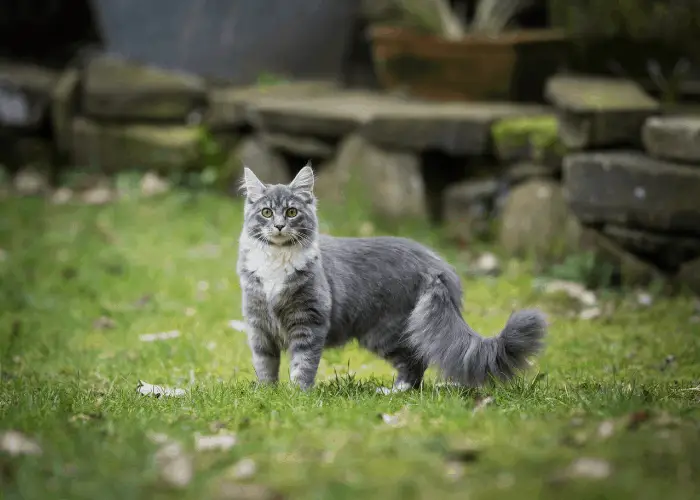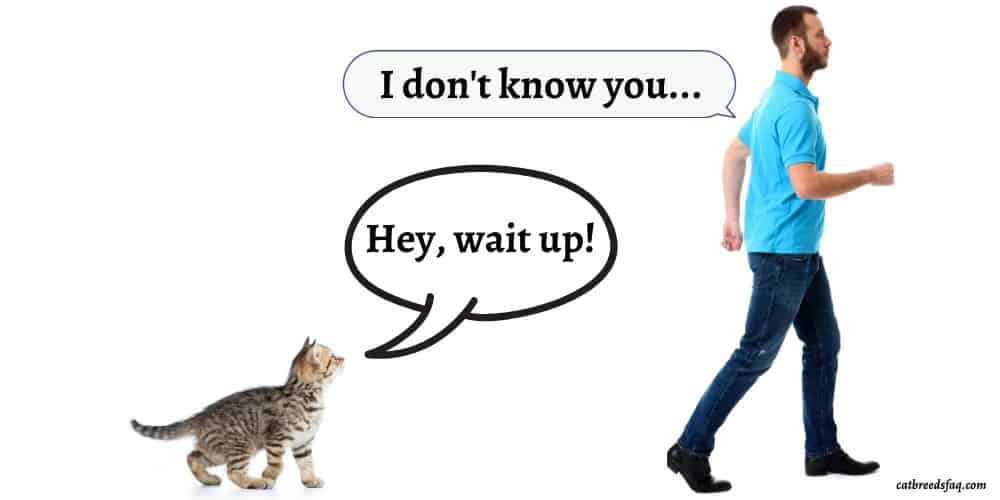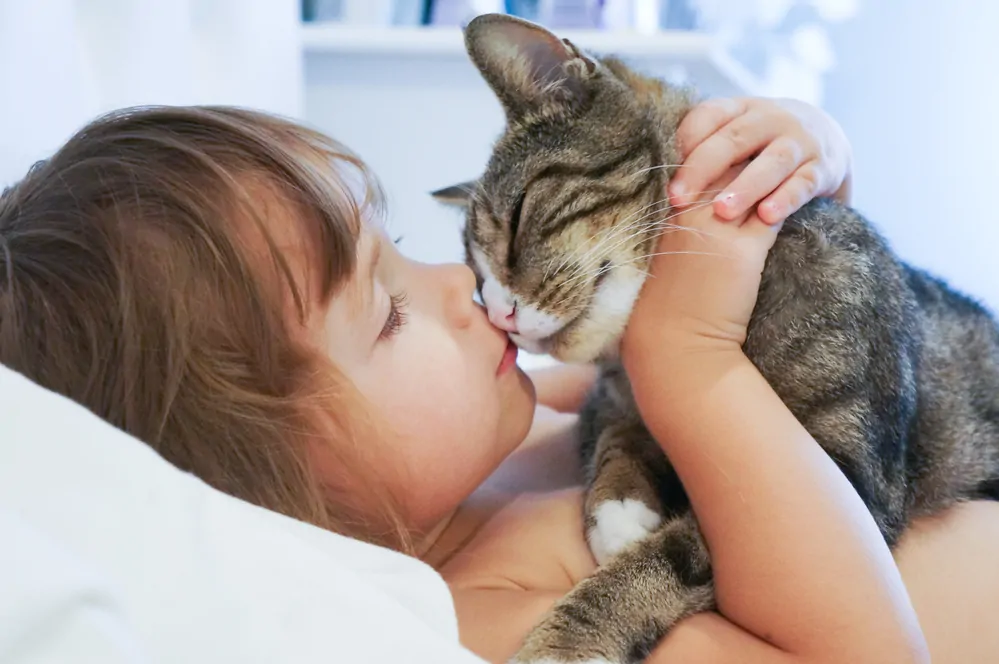Why do cats follow strangers? It’s a phenomenon that we’re taught as humans from a young age to avoid for our own safety- stay away from strangers. But apparently, cats have no such worries. So, why do cats follow strangers?
Cats follow strangers because they are curious, seeking attention, or starving. Cats that are out and about are most likely familiarized with people, having people of their own to return to when it wants. Sometimes they can simply be trying to introduce themselves.
Also, there’s a difference between following and approaching. Well, we might not see a big difference, but in the mind of a cat, there’s a huge difference.
We’ll talk about that below, among other things. But first, we’ll talk about why some cats tend to follow strangers while they’re fooling around out in the yard.
Why Do Cats Follow Strangers In Their Yards?

When cats are let outside, it’s for several reasons in the cat’s mind. They may need to go potty, but that’s just a pit stop on the road to adventure.
Their world isn’t all that big while in the house. But when they go out, the world is their oyster- or so they think.
There aren’t any property limits, no rules, few predators in most areas, and all the little critters and insects that can provide entertainment for hours.
Some cats take to people’s yards, though they’ve never formally met the owner. There’s something about what’s in their yard that is attracting the cat.
Maybe there’s a comfy place to sit down and clean themselves, where they get to watch stuff going on?

Or, perhaps, there’s the scent of the owner’s cats it might be interested in? An abundance of chipmunks, squirrels, dragonflies, mice, moles, or moths, could be reasons for the cat to hang around searching for a furry or winged toy.
If it’s a cat that comes from a neighbouring home, it’s come to know humans as a friend, or at least view us as creatures friendly to them (whether or not they return the sentiment that is on them).
They don’t have that instinctual fear of humans that other animals have. The same is true for neighborhood dogs too.
So, suppose a cat is spending a lot of time in your yard, following you around as you roam about doing whatever. It’s probably curious about what you’re doing, and furthermore, what you’re doing in its hang-out zone.
The Difference Between Following And Approaching

Cats are curious creatures, sometimes too curious (as the old saying goes- curiosity killed the cat). At times, we might mistake the curiosity of a strange cat as attention-seeking.
It’s not the same. A curious cat hasn’t yet determined whether a situation is safe or whether it’s comfortable with a situation. The verdict is still out; therefore, it’s curious.
A curious cat will follow a stranger if it feels like it. But it won’t warm-up and get into a reachable distance until its curiosity is satisfied, and you’ve been deemed safe- or at least not a threat.
A cat following someone will typically keep a distance. When the person being followed mistakes that for wanting attention and tries to provide some, the cat will usually recoil and back off.
But, if the stranger stops, talks to it in a high-pitched voice (as people tend to do with cats), and allows the cat to feel comfortable, the following will transform into an approach.
An approaching cat means it’s allowed itself to come within petting distance. If it’s comfortable enough, it just might make the first move by bashing itself into your leg, which means, “Hi there!”
Even after doing that, it might still remain flighty due to not being quite sure what your intentions are, although it dished out the first olive branch.
People Also Ask:
Here are some questions that people ask that are tightly related to the topic of cats that follow people.
What Does It Mean When A Strange Cat Follows You?

What does strange mean? If “strange” means a cat you’ve never seen before, then this article applies as an answer to this question.
But if strange means a scruffy looking, collarless cat, it might be either lost or abandoned and could be looking for some help.
What To Do If A Random Cat Follows You?

There are a few things to bear in mind when a cat follows you. Firstly, how far away are you from your destination?
Suppose it’s a cat local to where it started following you, and you’re taking a long walk. In that case, it might be best to prevent it from following you into unfamiliar territory.
Chances are that people local to that neighborhood know the cat if it’s out and about often. Heading to the closest home and asking about the cat is an option. It might be either the owner or someone who knows where the cat comes from.
Assuming that it doesn’t have a home should be the very last option. Never take a cat home because you’ve assumed that nobody will be missing it. Make an effort to get the cat to its home if possible. Doing so might just be the help it’s looking for.
What Attracts A Cat To A Person?

It’s either a strange sense developed in the cat or a keen eye and observation, allowing the cat to know that it should like you or push you away.
A cat can tell within moments whether or not you’re good with cats and know how to treat them right. Most cats will gravitate toward those who they deem safe and rewarding.
Can Cats Sense If You’re A Good Person?

Cats don’t define what a “good person” is in the same way that we do. A cat will only care about whether or not a person is good to them, rather than being concerned if a person is ugly toward everyone else.
You could have a saint toward other people be hated by cats- simply because they’re no good with cats.
On the other hand, you could have someone hated by everyone, who also hates everyone and is a horrible person, yet is beloved by cats because of how well he treats them.
At times, scent plays a role. If a cat doesn’t like your scent, it won’t be comfortable with you at all.
In fact, it might get angry or become fearful. A casual observer might find this to be a cat determining that a person is no good when, in reality, he smells funny to the cat.
Final Thoughts

Cats can do some interesting things. We need to do one major thing to understand what’s going on in their minds or to help explain why they do things they do (such as following strangers around).
That major thing is to stop applying the what, why, and how we would do something to our cats. They have their own way of doing things and their own way of thinking. The sooner we understand that, the easier it is for someone to understand why a cat does what it does.


